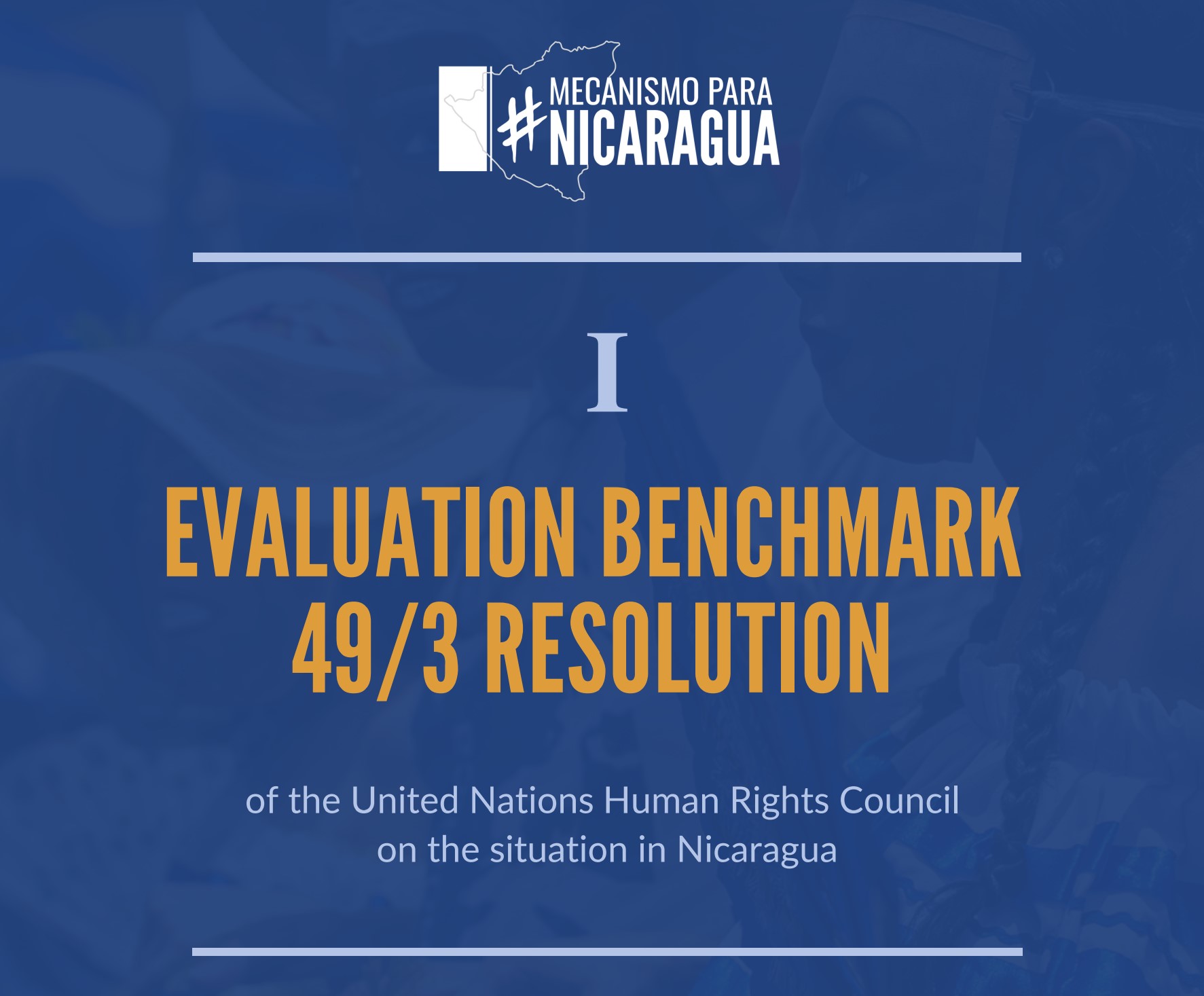
Nicaragua: Evaluation Benchmark of Resolution 49/3
'Colectivo 46/2' has published an Evaluation Benchmark on the implementation by the Nicaraguan government of Human Rights Council resolution 49/3 on the human rights situation in the country.
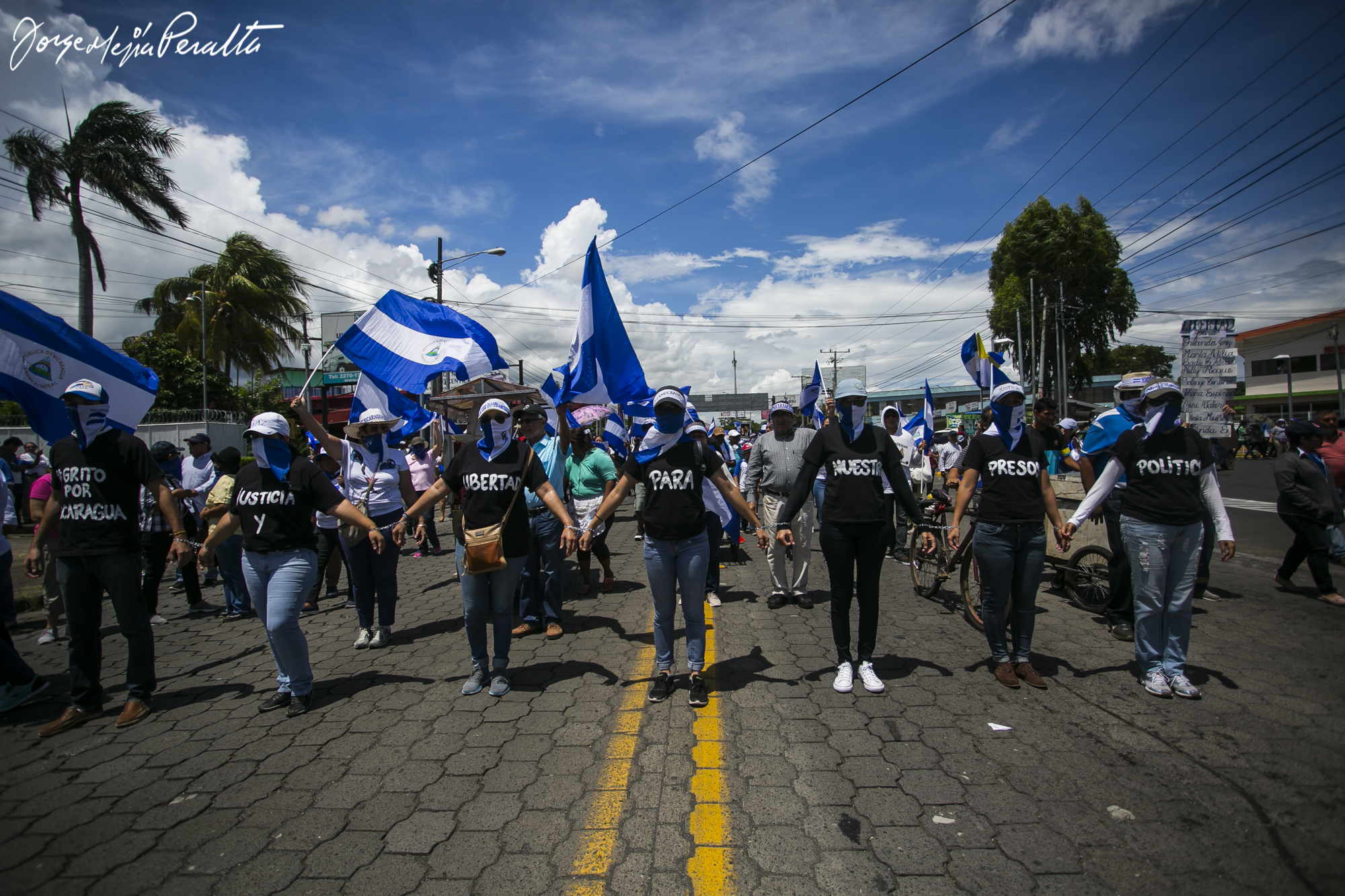
©Jorge Mejia Peralta
International and local Nicaraguan civil society organisations are calling for the renewal of key United Nations human rights protection mechanism on Nicaragua.
UPDATE: We did it! The Human Rights Council (HRC) adopted a resolution extending the mandate of the Group of Human Rights Experts on Nicaragua (GHREN) for two additional years, strengthening its focus on Indigenous and Afrodescendant Peoples, reprisals, and political prisoners.
Read more about this campaign win
We believe in an open, equal, and democratic Nicaragua. A Nicaragua in which the human rights of all people are guaranteed without distinction, and where those who raise their voices against abuses are protected. A country in which truth and justice are guaranteed without exception, especially for those groups who have been historically discriminated against.
This is not currently possible in Nicaragua. Since April 2018, the government has criminalised, arbitrarily detained, tortured, disappeared, and even killed, those who promote human rights and who question the government’s actions, including indigenous and Afro-descendant peoples defending their ancestral territory. It has also adopted a series of laws restricting freedoms of expression, peaceful assembly and association, further closing space for civil society to push for positive change.
Recognising this crisis, the UN, through its Human Rights Council, has taken action by adopting resolution 46/2 in March 2021, calling on the Government of Nicaragua to adopt a series of urgent measures to resolve this multi-pronged human rights crisis.
In March 2022, following a campaign led by Collectivo 46/2, including the International Service for Human Rights, the Human Rights Council created a Group of Human Rights Experts on Nicaragua through resolution 49/3 mandated to investigate alleged human rights violations in the country since April 2018.
It is now time to renew the Group’s mandate.
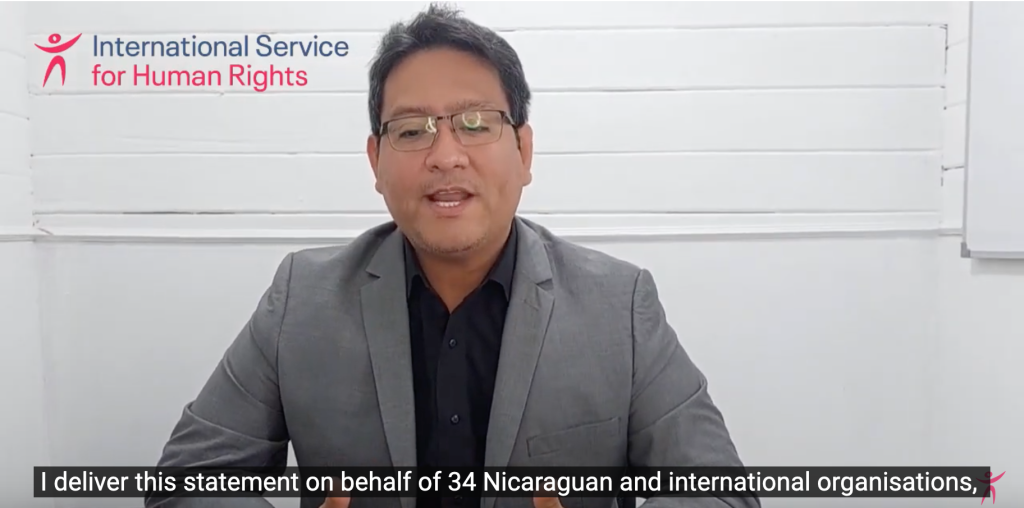
Colectivo 46/2 is a coalition of Nicaragua, regional and international NGOs, including ISHR. The coalition has been monitoring the implementation of Human Rights Council resolutions on Nicaragua since 2021. The Colectivo has produced a series of Evaluation Benchmarks to assess the degree to which Nicaragua has implemented recommendations made by the Human Rights Council in its prior resolution on the matter (46/2).
The Benchmarks assess government action – or inaction – against a series of clear objectives, drawing on public information from the United Nations and Inter-American human rights systems, as well as independent civil society and media reports.
The coalition also published an Evaluation Benchmark assessing the implementation of the latest HRC Resolution on Nicaragua (49/3), which contains findings that should alarm the international community and lead it to demand compliance by the Government of Nicaragua with its international obligations. Findings include:
More information on Colectivo 46/2
Together with Colectivo 46/2, ISHR is calling on:
Nicaragua needs justice and truth to get out of this crisis and recover as a society. Share this campaign page and raise awareness with a journalist you know, your peers, or on social media, with the hashtags #MecanismoParaNicaragua and #SOSNicaragua.
#HRC52: joint statement on the renewal of the UN resolution on Nicaragua, delivered by Olga Valle of Urnas Abiertas on behalf of ISHR, Urnas Abiertas and the Colectivo 46/2 coalition calling for the renewal of UN human rights resolution on Nicaragua. It was delivered during the interactive dialogue on the oral update of the UN High Commissioner for Human Rights on Nicaragua, at the 52nd session of the Human Rights Council.
We urge the Human Rights Council to renew for two years its resolution on the situation of human rights in Nicaragua, which establishes the mandates for investigation by the Group of Experts on Human Rights in Nicaragua (GHREN) and monitoring by the Office of the United Nations High Commissioner for Human Rights (OHCHR).
The Human Rights Council usually renews its country resolutions for one-year periods, in order to be able to reassess volatile national contexts on an annual basis. However, the resolution on Nicaragua should be renewed for two years, for the following reasons:
Indigenous peoples and afro-descendants:
Arbitrary detentions and persecution of political detainees:
Migration:
Gender Violence:
Cooperation with international bodies:
Retaliation:
The GHREN is an international UN investigative and accountability mechanism established for an initial period of one year by the UN Human Rights Council through its resolution 49/3 in March 2022.
The GHREN is mandated to:
The GHREN is not a judicial body and its findings are not legally binding, but inform the international community in an impartial manner, and constitute evidence for future justice and accountability processes.
The GHREN is composed of three independent experts appointed by the President of the Human Rights Council: Jan-Michael Simon (Chair of the GHREN), Angela Buitrago, and Alexander Alvarez (stepped down).
In March 2021, the Human Rights Council adopted resolution 46/2 calling on the government of Nicaragua to adopt a series of emergency measures to resolve the multidimensional human rights crisis in the country
In 2022, ISHR, together with Colectivo 46/2 campaigned for a more assertive response from the HRC through the establishment of an international mechanism that ensures justice and accountability for Nicaragua.
In March 2022, the Human Rights Council adopted resolution 49/3 which created the ‘Group of Human Rights Experts on Nicaragua’ and in which it urged the Nicaraguan government to cooperate with a range of UN bodies, including the newly created Group of Experts. This group is mandated to investigate alleged human rights violations and abuses committed in Nicaragua since April 2018 and make recommendations to relevant stakeholders.
On 15 December 2022, ISHR, together with the Colectivo 46/2 coalition issued a global call for the strengthening and two-years renewal of resolution 49/3 at the Council’s 52nd session in March 2023.

'Colectivo 46/2' has published an Evaluation Benchmark on the implementation by the Nicaraguan government of Human Rights Council resolution 49/3 on the human rights situation in the country.
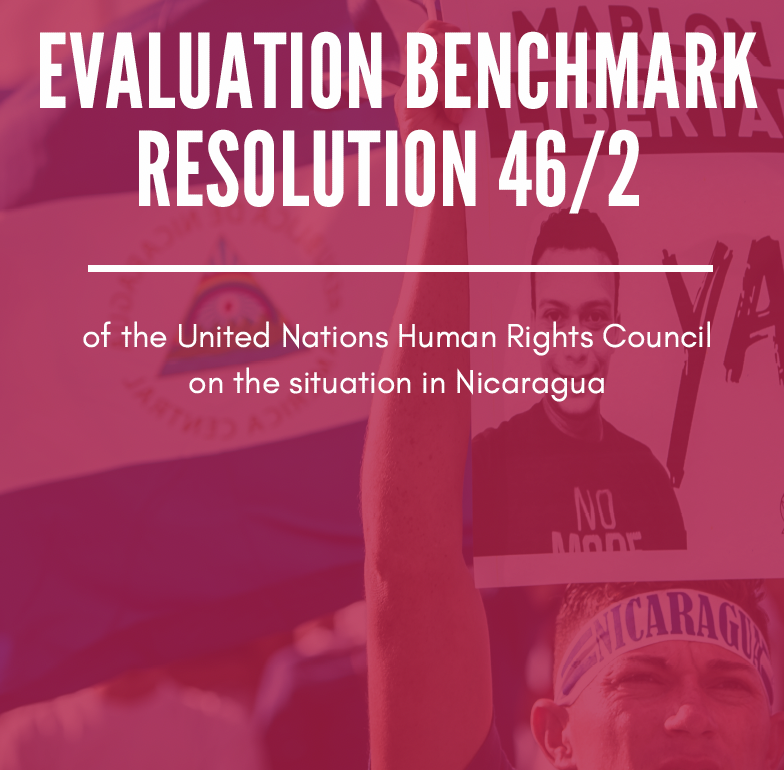
The 'Colectivo 46/2', and ISHR, have launched a series of Evaluation Benchmarks on the implementation of Human Rights Council resolution 46/2 on the human rights situation in Nicaragua.
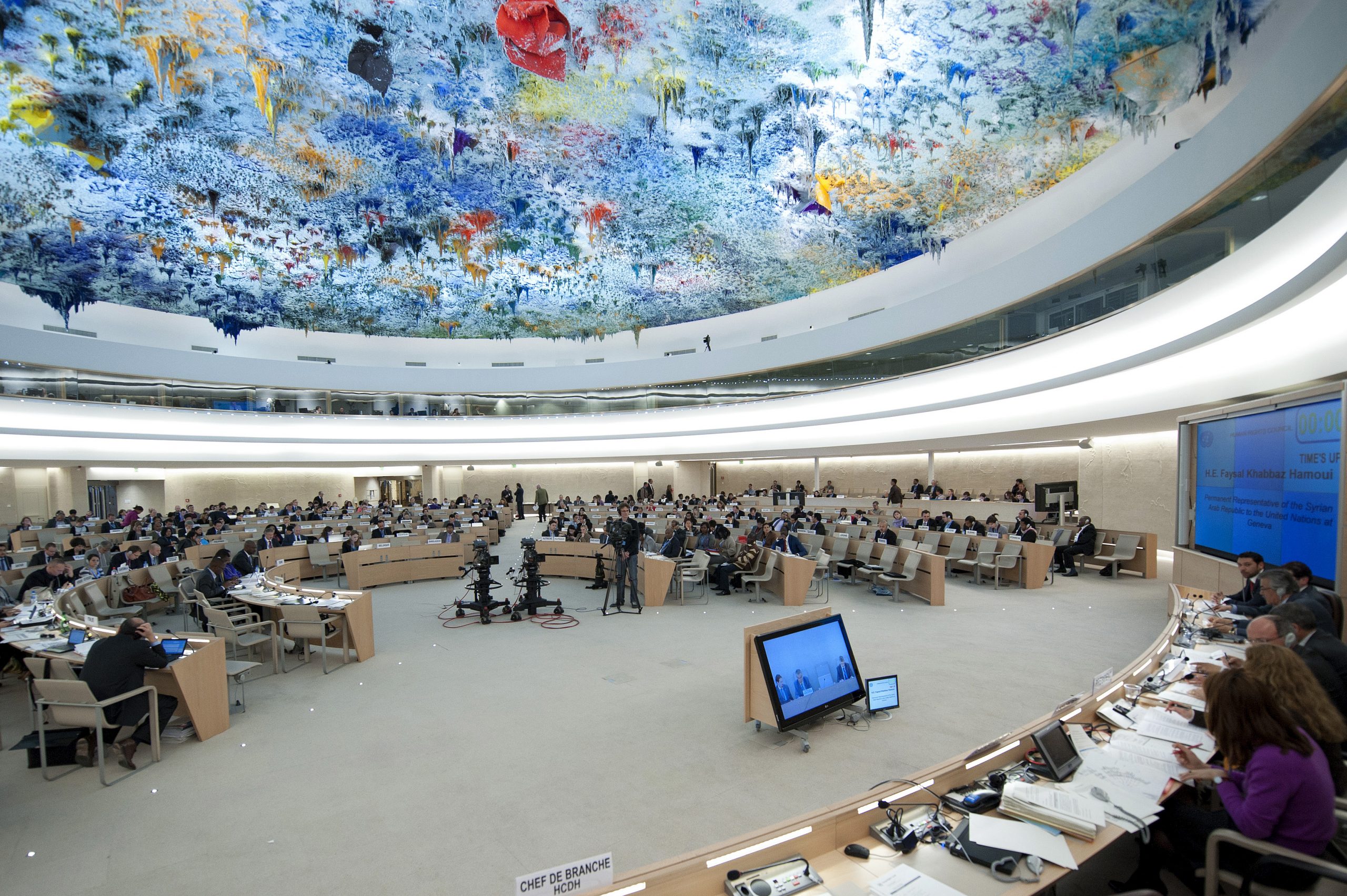
UN Human Rights Council should renew the mandate of the Group of Human Rights Experts on Nicaragua for two years and extend the reporting mandate of the OHCHR